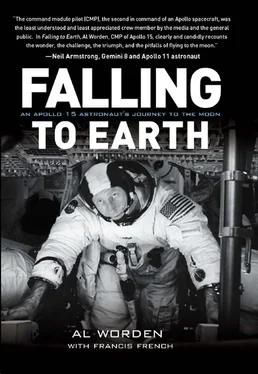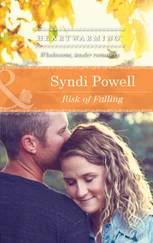I loved to work alone out in the fields. It was a great kind of freedom. Nobody bothered me, and my family was happy because I stayed busy. What else could they ask me to do? I was already doing it. I loved being by myself, plowing a field, planting corn, cutting and baling hay, and looking after the animals. I would focus completely on making an absolutely straight furrow when plowing, and the rest of the world shrank away.
Springtime was my favorite time of year, when the snow finally melted and the days grew warmer. I would make some sandwiches, head out into the forest, find a tree to sit under, and just enjoy feeling completely disconnected from everything and everyone. No one knew where I was or could bother me, and I was as isolated from other people as if I had been on the other side of the moon.
Despite the heat, I loved the summers. I would work on the farm all day, and nearly every night our family would pile into a car, head to a favorite lake, and swim. Those nighttime swims after a long, hot day of work were magical.
It was not unusual for me to work ten hours a day in the hot summer sun. One day I was carrying hay into a barn, and I passed out. I learned that if I didn’t keep myself well hydrated my blood pressure fell dangerously low. From then on I always took a gallon jug of farmer’s lemonade with me when I went out to the fields. It was a special kind with salt added, sold door to door by traveling sales folk. I never fainted again.
Farming occupied most of my time out of school, but I knew my mother expected me to aspire to more. She knew the life and she knew its limits. Unable to go to college herself, she created opportunities for her kids that she had lacked when growing up. First, she enrolled us all in tap-dancing classes, which I took for about a year. After that I began piano lessons. To pay for these extras, my mother had to take in neighbors’ laundry, but it was worth it to her to broaden our horizons.
My piano lessons were hellish. My teacher was strict and would really crack the whip and push me, but I stuck with those lessons for almost a decade. I stayed with them because it helped me feel closer to my Grandpa Fred. He was musical and played the fiddle at monthly potluck dinners and dances at his local meeting hall. I learned how to square dance to the music he played and absorbed a huge amount of musical knowledge just being around him.
After a while, I could perform a range of classical music well and played at school functions. But I also performed in a local band, and our music was very different. In that part of Michigan, more than half the people were of Polish descent. The Polish-American club in town had their own hall, and every weekend they held a dance. In the tenth grade, a friend of mine who performed there in a polka band asked me to substitute for another piano player. I think I was the only member who wasn’t Polish. Soon, our farmhouse walls were frequently shaken by the sound of our practicing group.
We played at these dances all the time and performed all night long. There were five of us in the band—all in high school, all good buddies—and over time we became pretty good. We wrote music, played on a radio station down in Toledo, Ohio, a couple of times, and even recorded a song, called Chew Gum Polka . We were once hired to go to Flint, Michigan, for a huge Polish wedding and played around the clock. Polish weddings were three-day affairs. We had a good time, and it put a little money in my pocket. At that time, I thought I might earn a living as a jazz pianist. If you’d have told me I’d soon be flying airplanes instead, I wouldn’t have believed you.
My first memory of airplanes comes from when I was about four years old. One day, a twin-engine aircraft from a little nearby airport had an engine problem and made an emergency landing in the pasture below our house. It hit a fence and skidded to a stop in the grass right next to the railroad track. They had a hell of a job hauling that airplane out of the field, and I remember running down to watch them in wonder. The experience made quite an impression on me. Yet I never thought about aircraft again until I was at West Point.
Similarly, although I ended up in a career that required engineering skill, I don’t think my father’s work as an electrician steered me in that direction. When I was a kid, I never understood the work he did.
I never spent time with my father while he repaired things in his little shop in town, but I did spend a lot of time with him when he ran the movie projection machine. “The Michigan,” as it was called, was one of the most impressive theaters I have ever seen. It looked more like a Spanish church than a movie theater and was a wonderfully atmospheric place. Built in a baroque style, with ornate plasterwork, marble and walnut paneling, it had a hydraulic lift by the stage that elevated a guy playing the organ back in the days when movies had no sound.
When I was old enough, I had to go into town to the high school. The theater was nearby, so after school I’d walk there, head up to the projection booth, and sit with my Dad watching memorable movies like Dracula and Frankenstein . Of course, a few of my high school friends always wanted to sneak in and see the movies, too. When I flew to the moon, my father was still working in that same projection booth in that same theater.
I might not have been too interested in airplanes or electronics back then, but other mechanical things fascinated me, especially cars. My fourteenth birthday present was a driver’s license. I could get a license young because I lived on a farm. Soon afterward, I bought a 1932 Plymouth four-door—a real junker for which I paid maybe thirty dollars. It had long, sloping fenders and suicide doors that opened on rear hinges—what we used to call a gangster car. It looked great, but it wouldn’t run. It needed a generator, which I couldn’t afford, so I found a dry cell battery, and ran the car on that. I’d leave the key in the ignition and disconnect the battery when I parked it. I tinkered with that car a lot and took serious mechanical questions to Laverne, a truck driver and family friend who owned a small auto shop up the road.
I drove that vehicle to high school until the day one of my buddies jumped on the back bumper, which promptly fell off. That was the end of that car, I decided. So I bought a 1932 Model B Ford pickup, with the first Flathead V8 engine that Ford built. I knew I had to rebuild the engine, so I went to Laverne’s auto shop. He’d watched my interest in cars develop over the years and was delighted to assist me. Using his chain hoist, we pulled the engine out of that car and rebuilt it.
Rebuilding is a fairly precise task if you want to do it right, I learned, but I managed. I drove that car for a couple of years despite its many quirks. The steering wheel was temperamental: every time I’d turn right the lights would come on. No problem—turning left switched them off. The brakes were also tough to adjust, and the only one that worked well was the brake for the right front wheel. I didn’t care. I loved machines, broken brakes and all.
After school I used to take that Ford truck, load the back up with friends, and head to a local lake where a lot of my friends spent the summers. Like many high school kids, we acted crazy, and never thought about safety. We’d drive over railroad tracks, kids would bounce up and down in the back. I was really lucky that nobody ever got hurt. Eventually I sold the truck because I could finally afford a 1937 Ford Roadster, which I drove in my senior year. It truly was a gorgeous car: a two-seater with a rumble seat, a convertible top, and another engine that I rebuilt. Right after I graduated, however, it all came to an end.
Naturally, it happened at the worst possible time: a camping trip with two good school buddies named Don and Hugh. By then, that car looked really slick. It had black paint with white sidewall tires, a white top, and white running boards—just perfect. We drove it to the Upper Peninsula of Michigan, where we camped out for a week. On the way back, while I slept in the rumble seat, Hugh noticed that the engine started to make a pinging noise. He didn’t know what it was, so he pushed the gas a little, made it go a little faster, and the pinging stopped. Eventually, however, the sound came back again. So he went faster and faster to make the noise disappear, until he was tearing downhill at about seventy miles an hour. At the bottom of the hill, the engine froze. That jolt woke me up in a hurry, and we found we couldn’t start the car again. It turned out that there was a leak in the oil pan gasket, and there was no oil left. Without any lubricant, the engine seized up. So that mishap was the end of that car; I had little choice but to just leave it there. I don’t remember how we got home, but I do recall the pain of losing that beautiful machine.
Читать дальше












